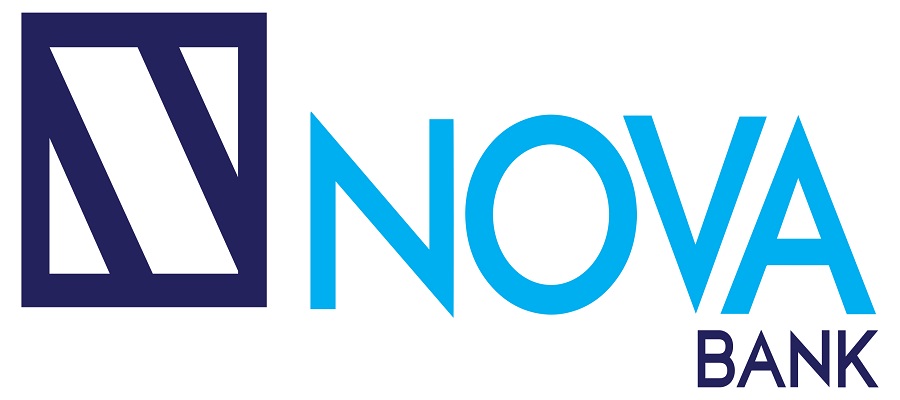E-Financial
Access Bank Revamps QuickBucks, Disburses N740Bn Digital Loans in 7 Years

Access Bank has revamped its digital loan platform ’QuickBucks’, to boost lending across Nigerian consumers.

The bank said customers can access the bank’s digital loans for businesses, vehicle financing, school fees payment, among others. QuickBucks Loans allow customers to get that assistance fast and easily.
Since the introduction of its first digital PayDay loan in 2017, Access Bank has issued 18 million digital loans amounting to over N740 billion, enabling customers to receive up to N10 million instantly.
Njideka Esomeju, group head, consumer banking, said: “Many Nigerians are facing financial challenges due to the economic situation in the country. At Access Bank, our goal is to enable every Nigerian to achieve financial freedom, which is why we introduced digital lending solutions.”
Esomeju highlighted the accessibility of QuickBucks Loans, stating, “The loan can be accessed through the QuickBucks USSD code, the Access More app for smartphone users, or via the QuickBucks platform on web or app.”
She elaborated on the platform’s evolution, noting, “Initially, our digital loans were limited to salary earners with a 30-day repayment term. Now, QuickBucks Loans offer up to 12 months of repayment time for customers with salary accounts, self-employed individuals, active account holders, as well as business and trader account holders.”
Efe Obaigbena, unit head of digital lending, emphasised the purpose and improvements of QuickBucks Loans. “These loans are designed to address our customers’ urgent financial needs,” Obaigbena said.
“Since its launch in 2017, QuickBucks Loans have seen significant enhancements. As a responsible lender, we ensure our customers do not face excessive debt by capping our loans at a percentage of salary or account transactions. Eligibility also requires a good credit record across all financial institutions.”
Regarding interest rates, Esomeju stated, “Our interest rates are among the lowest in the industry, ranging from about 5 percent to a maximum of 15 percent, depending on the type of loan.” She added that QuickBucks Loans are designed for ease of access, noting, “For customers with low literacy levels, our USSD code provides a straightforward way to obtain digital loans, allowing them to join the financial system regardless of their financial knowledge.”
Oladisun Dawodu, team lead of digital lending, discussed the bank’s commitment to integrating FinTech innovations.
“Access Bank embraces FinTech culture to distinguish itself in the market. We are preparing for future advancements such as AI-based lending solutions, blockchain technology for secure transactions, and closer integration with financial ecosystems.”
Dawodu, said, “We are investing in technology and strategic actions to ensure QuickBucks Loans remain competitive and responsive to these developments.”
Dawodu said QuickBucks Loans are attractive because they are automated. “Getting a QuickBucks Loan is quick and easy, and so is repaying it. Customers just need to make sure they have enough money in their account on the due date(s) and the payment will be deducted automatically, without any hassle. Our customer support team will also contact you with messages and calls as your due date approaches.”
E-Financial
NOVA Bank Opens Regional Office in Owerri

NOVA Bank has opened its regional office in Owerri, Imo State, as part of its expansion drive across the South-East and South-South regions.

At the inauguration ceremony, recently, Senator Hope Uzodinma, Imo State Governor, announced that the state government would provide land for the development of the bank’s permanent regional headquarters for the South-East and South-South in Owerri.
The event was attended by government officials, business leaders from the two regions, and members of the Nigerian diaspora.
Governor Uzodinma stated that the bank’s entry into Imo State aligned with the government’s efforts to promote economic growth through infrastructure development, improved road networks, and market-driven initiatives.
He described NOVA Bank as an early investor in the region’s emerging economic opportunities.
He also commended the bank’s approach of combining physical banking infrastructure with digital platforms, noting that it aligns with the state’s emphasis on technology-driven governance and commerce.
“In recognition of NOVA Bank’s vision and long-term commitment to the region, the Imo State Government will allocate a suitable parcel of land in a prime location for the development of its permanent South-East/South-South Regional Headquarters,” the governor said.
Speaking at the event, Phillips Oduoza, chairman, NOVA Bank, thanked the Imo State Government and residents for their support, describing the Owerri office as a key part of the bank’s national expansion strategy.
“The opening of our regional office in Owerri marks a strategic milestone in NOVA Bank’s growth and underscores our commitment to the South-East and South-South,” Oduoza said, adding that the city would serve as a hub for the bank’s operations in the region.
He said the bank’s expansion is driven by a focus on sustainable growth, innovation and strong financial fundamentals, noting that NOVA Bank is investing in digital infrastructure and financial solutions to support small and medium-sized enterprises, corporates, public-sector institutions, high-net-worth individuals and the mass market.
According to him, the planned regional headquarters is expected to support job creation, improve access to credit, promote enterprise growth and deepen financial inclusion across the two regions.
Oduoza said the bank remains focused on building a resilient institution that delivers value to customers, partners and shareholders.
The opening of the Owerri regional office marks NOVA Bank’s latest step in expanding its presence in southern Nigeria.
E-Financial
SEC Says CMOs Must Renew Registration in January

Securities and Exchange Commission (SEC) has announced that Capital Market Operators (CMO’s) are to renew their registration from January 1 to 31, 2026.

In a bid to make the process seamless, the Commission says it will commence electronic receipt and processing of applications for registration and updates of registration information in the first quarter of 2026.
Dr. Emomotimi Agama, director general of the SEC, stated this during an interview in Abuja.
According to Agama, “These initiatives reflect our commitment to leveraging technology for faster, more transparent, and efficient regulatory processes. The Commission is taking deliberate steps to make regulatory processes faster, more transparent, and technology-driven. We are investing in automation, databased supervision, and secure infrastructure to improve how we interact with the market.
The SEC Boss stated that through its Digital Transformation Portal, the Commission has automated registration and licensing end-to-end as operators can now submit applications, upload documents, and track approvals online, cutting down manual processing time and reducing the need for physical visits.
Commercial Paper Issuance Module
He said the Commission has also rolled out the Commercial Paper issuance module, which allows operators to file documents, monitor progress, and receive approvals electronically while feedback from early users shows a clear improvement in turnaround time.
“Work is ongoing to automate quarterly and annual returns submissions, with structured templates and system checks to ensure accuracy. A returns analytics dashboard is also in development to support risk based supervision and exception reporting.
“To back these changes, we have started upgrading our IT infrastructure, servers, storage, networks, and security layers, to boost speed and reliability. Selective cloud migration is underway for platforms that need scalability and external access, while core internal systems remain on premisev5p for now as we assess security and cost implications.
“At the same time, we are strengthening data integrity and cybersecurity with vulnerability assessments and planned penetration testing once automation and migration phases are stable. These efforts show our commitment to building a modern, resilient regulatory environment that supports efficiency, investor confidence, and market stability.
Agama affirmed that the Nigerian Capital Market is clearly on a path toward digital transformation, therefore, there is an urgent need for regulatory clarity on advanced technologies, targeted support for smaller firms, and capacity-building initiatives.
He said, “A phased and proportionate approach to regulating emerging technologies such as AI is essential, complemented by internal readiness through supervisory technology tools. Furthermore, investor education, particularly among younger demographics, will be critical to future-proof participation and drive fintech adoption.
“Innovation is vital, but it must be accompanied by responsibility. As operators embrace automation, artificial intelligence, and data-driven tools, they bear a duty to ensure ethical, secure, and compliant deployment. Safeguarding investor data, preventing market abuse, and maintaining operational resilience are non-negotiable.”
The SEC DG said that ultimately, responsible technology adoption is about building trust, the cornerstone of our markets saying that trust thrives on fairness, transparency, accountability, and regulatory compliance.
He therefore urged operators to uphold these principles adding that it would not only protect investors and systemic stability but also strengthen the long-term credibility and competitiveness of the Nigerian Capital Market.
E-Financial
Naira Stability, Lower Borrowing Costs Expected in 2026 — CBN Survey

The naira is projected to remain largely stable in the coming months, while borrowing costs are expected to ease as inflation moderates, according to the Central Bank of Nigeria’s (CBN) latest Business Expectations Survey (BES).

CBN
The survey, which polled about 1,900 businesses nationwide, revealed that confidence in the local currency has strengthened. Respondents expect the naira to rise from an index of 28.8 points to 42.2 points by May 2026, extending the rare period of stability recorded throughout 2025.
Borrowing rates are also forecast to decline, with the index dropping from 15.4 points to 11.7 points, reflecting expectations of softer monetary conditions as inflationary pressures ease.
“Respondents expect the naira–US dollar exchange rate to steadily appreciate across the review periods, as indicated by the positive indices. They also anticipate a continuous positive outlook for borrowing rates during the same periods,” the BES report stated.
The naira has enjoyed an unusually long stretch of stability after losing about 41% of its value in 2024 following the unification of exchange rates. Analysts attribute the current calm to the CBN’s calibrated interventions and steady inflows from foreign portfolio investors.
Inflation, which stood at 14.45% in November 2025, is projected to fall to single-digit levels in 2026. This outlook could give monetary authorities room to begin a gradual easing cycle, potentially improving credit access for businesses.
Despite the improving macroeconomic environment, businesses continue to grapple with structural constraints. The survey highlighted insecurity (70.1 points), high/multiple taxation (69.7 points), and insufficient power supply (69.3 points) as the most pressing challenges. Other concerns include poor infrastructure and an unfavorable political climate, both scoring 57.7 points.
While optimism surrounds the naira and borrowing costs, the BES underscores the need for sustained reforms to tackle deep-rooted operational challenges. Analysts say that without addressing insecurity, taxation burdens, and infrastructure gaps, Nigeria’s businesses may struggle to fully benefit from the improving macroeconomic outlook.

 News2 days ago
News2 days agoUS Okays $2.1Bn for Christian Healthcare in Nigeria

 General News2 days ago
General News2 days agoThe Mood Market to Light Up Lagos with a Rooftop Gifting, Food & Lifestyle Fair this Christmas

 Broadcasting2 days ago
Broadcasting2 days agoTim Akano Recounts 20-Year Growth, Media Support at NITRA End-of-Year Meet

 News2 days ago
News2 days agoSERAP Asks Tinubu to Release CTC of Tax Bill

 E-Financial2 days ago
E-Financial2 days agoSterling Bank, Water.org, Sterling One Foundation Partner on WASH Loan for Millions

 General News2 days ago
General News2 days agoLeo Stan Ekeh: A “Rare Avis”, an Unconquerable Entrepreneur

 General News2 days ago
General News2 days agoFCCPC Forces Ikeja Electric Into Compliance, Unseals Headquarters After Rights Breach

 General News2 days ago
General News2 days agoNITDA Wins Triple SERVICOM Honours for Citizen-Centred Service Delivery
























